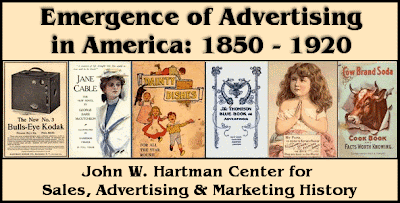
It's easy to sell stuff to people who want to buy it.
But it's nearly impossible to sell stuff to people who don't want to buy it.
I've been considering upgrading my phone to a smart phone for awhile. But the price had to be right.
This month my step-daughter told me her fiance was buying her an iPhone for her birthday and he was adding her to his cellphone plan. Her birthday is at the end of July, but the new iPhone was coming out this week.
So Tuesday I visited my usual cellphone store, an authorized Verizon retailer, to check out my options for a new phone for me and what the cost savings where going to be with one less phone on our plan.
It wasn't a good experience. The store was understaffed, and the guy had to call Verizon customer service to get answers. The answers were vague and I decided it was time for me to shop around.
7am Wednesday my phone rings and it's my step-daughter asking for account info because she is in the process of transferring her number to AT &T at that moment. By 8am, the deal was done and I was now in the market for my own smartphone.
Later in the day, I went to an official Verizon Wireless store and found out how to save money, get a Droid and start learning how to use the apps.
The guy that I talked to Tuesday night was incompetent in my eyes. He could have sold me a $200 phone this week, but due to his inability to help me buy, he lost the sale.
The folks that I bought the phone from really didn't have to sell me, they just had to help me buy.
How much better could your life become if you helped buyers buy instead of always trying to sell?
Wednesday, June 30, 2010
Stop Selling and Life will be Better
Posted by
ScLoHo (Scott Howard)
at
Wednesday, June 30, 2010
0
comments
![]()
![]()
Labels: Customer Service, sales
Tuesday, June 22, 2010
Saving your Way to Big Bucks?

One of my radio stations picked up a talk show host that has been on the top talk station for over a dozen years. We have been calling on the clients he did testimonial spots for and offering them a chance to stay with him, but on our station.
That's why I was meeting with a potential advertising client yesterday. It's a family run insurance business and they've been doing little piddly stuff for years along with some consistent advertising in other areas.
I noticed that they sponsored a Little League Baseball team. I learned they actually sponsored two teams. Cost them about $1000 a year. Could be good P.R. if they followed through and contacted each and every family that was involved with the teams and offered to do an insurance review for them. It could easily recover the costs and be a good investment instead of just good P.R.
In my meeting, they expressed caution. They have been losing some of their business clients because they have gone under in this economy.
Well, guess what. Nearly EVERYONE has had that happen to them. But the way to combat that is to invite more people to do business with you, not hide until the "bad times blow over".
You can not save your way to earning big bucks. Instead of cutting your advertising and marketing efforts, dig deeper.
Follow up, Follow through.
Stop wasting the leads you have and soon you'll discover the real path to big bucks is to pursue it with an honest passion to help your potential customers.
Posted by
ScLoHo (Scott Howard)
at
Tuesday, June 22, 2010
0
comments
![]()
![]()
Labels: advertising, marketing
Tuesday, June 15, 2010
Which Form of Advertising should I Use?

As a business owner, this is one of the most critical decision you need to make.
The number of options continue to grow, but not all options are created equal.
Let's come up with a measuring stick to determine what you should do.
The first question is, "How Long will I be in business?"
Some businesses are seasonal, like a Christmas Tree lot, or a Snow Cone stand.
For them, it would not make sense to advertise when they are closed.
But most businesses are open year round, and so if you are open 12 months a year, you need to advertise 12 months a year.
Your advertising needs to have both reach and frequency to the right people with the right message.
Let's use radio as an example, but you can apply this to billboards, television, paper, the web, anything really.
Reach refers to the number of different people who will see/hear your message. A radio station might have 50,000 listeners per week, but all of them will not hear your commercial.
Perhaps the average number of listeners at any one time is 1000. Only a percentage of those listeners will be in the market to spend month with you if they hear your commercial one time.
This is where Frequency factors in. Because our brains filter out most of the information we see and hear, I have a better chance of winning the lottery than you do of getting a new customer with just one commercial. And I have never even bought a lottery ticket!
Frequency is repetition. Think about the toddler that asks for a cookie, repeatedly until Mom or Dad give the kid a cookie just to stop the noise! If the kid asked just once, he would be ignored.
But repetition doesn't have to be annoying. That's where the right message comes into play.
So, what form of advertising should I use? One that you can afford to stick with with enough frequency to consistently reach and invite people to do business with you. Perhaps it's not the biggest radio station, maybe a more targeted station with a lower cost per commercial will allow you the right combination of reach and frequency for your budget will work better.
One last thought on this subject, take a look at the motivation of the person who is sitting across the table from you, trying to sell you advertising. Do they care more about their success or yours?
Ideally, they should care about both.
Posted by
ScLoHo (Scott Howard)
at
Tuesday, June 15, 2010
0
comments
![]()
![]()
Labels: advertising, basics
Thursday, June 10, 2010
Advertising: The Missing Piece

You can be the best plumber in your town and be broke.
You can be the best baker in your town and be broke.
You can be the best ___________ in your town and be broke.
If...
you do not invite people to spend money with you.
That's the single purpose behind advertising.
You have something of value that you will sell and you need to let your potential customers know about it, so they can give you money in exchange for the goods or service.
Yet, this piece of your business success is often missing, or not planned out.
The options are numerous for where to spend your advertising money. Next week, I'll give you the criteria most businesses should use to determine which will provide the most success and profit.
Posted by
ScLoHo (Scott Howard)
at
Thursday, June 10, 2010
0
comments
![]()
![]()
Labels: advertising
Thursday, June 3, 2010
When are you Open?

One of the things that a lot of businesses get backwards is focusing on themselves, instead of their customers.
What if restaurants were only open from 8 to 5, five days a week. Would they survive? Probably not unless you were only running a lunch counter.
Taco Bell was one of the first fast food chains to stay open late, they even invented the 4th meal concept. Now, I'm not likely to grab a taco at 4am, but lots of others do, and now several other fast food places are open until midnight or later.
What if you changed your hours to accommodate your customers? Would noon to 9pm work better for your customers? How about your employees, would they be in a better mood if they had mornings free?
Think about it, and rethink your hours of operation.
Posted by
ScLoHo (Scott Howard)
at
Thursday, June 03, 2010
0
comments
![]()
![]()
Labels: Customer Service, Open Early









